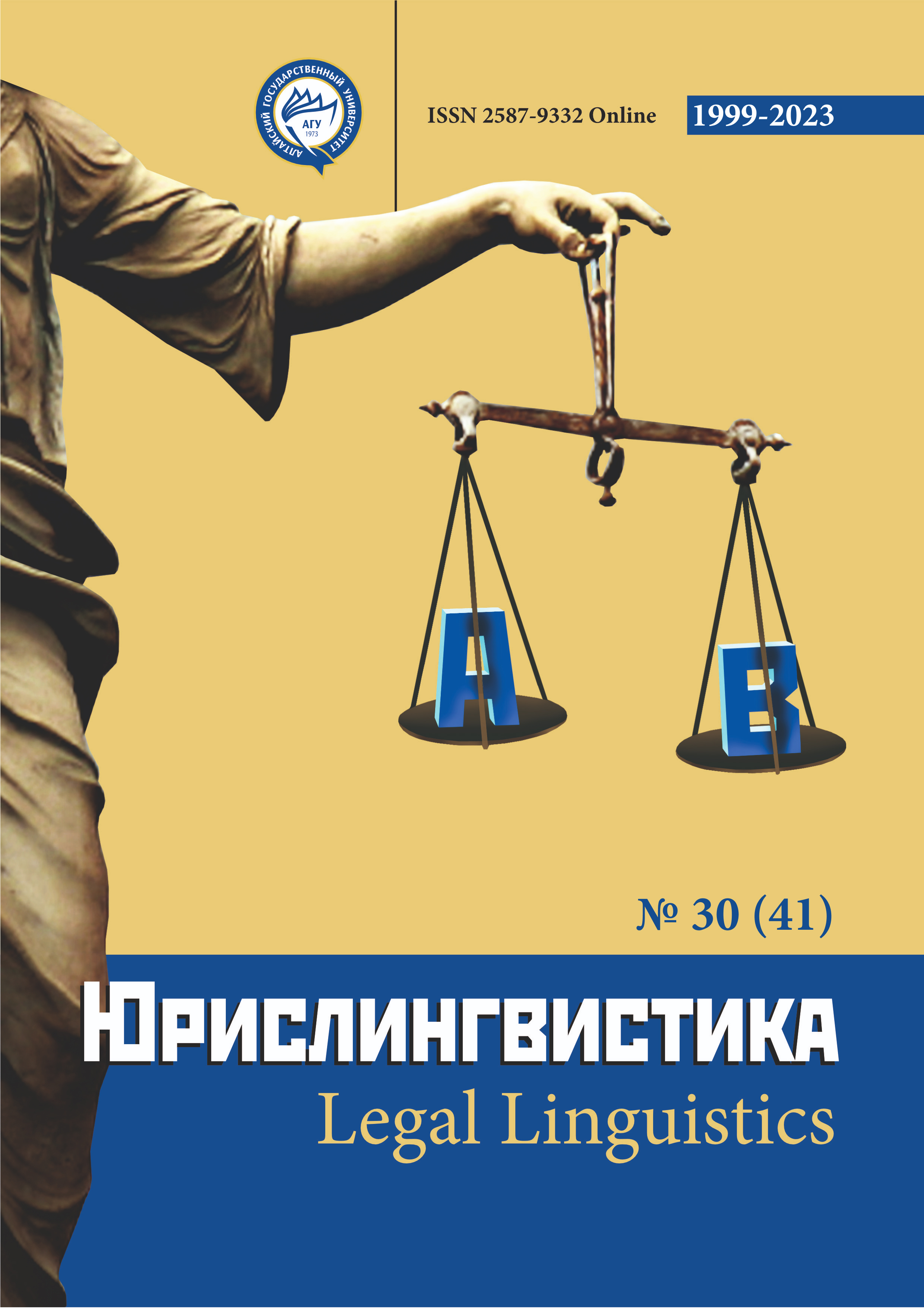Programming Language as Eligible One: Legal Aspects
УДК 34.096, ББК 67.0
Abstract
The article examines the situation with the introduction of programming languages as an eligible element and the possibilities of recognizing programming languages as acceptable and recognized by the state. It is the case now that the issues of the existence and application of programming languages for social regulations cause significant debate, although in fact we are talking only about smart contracts and the use of programming languages for their writing and launching. In other situations of professional use of programming languages, significant legal issues have not yet been raised so acutely. But the development of digital technologies and their implementation, including in the legal social regulations, is happening very rapidly. The likelihood of the need to use programming languages to regulate social relations, and with a significant overrun beyond the strictly professional range of issues, is a very near future. The existing gaps between natural and artificial languages, between regulatory norms and the technologies used for their implementation, are being annihilated very quickly. All this forces us to evaluate programming languages in the legal domain and determine the conditions and boundaries of their existence along with natural languages. The main part of the article examines the relationship between natural and artificial languages, defines the system of artificial languages proper and their classification. The status and position of programming languages existing at the moment are revealed. As a result of the research, a conclusion is made about the prospects for the existence of a programming language as an eligible one, about the possibilities and conditions of its use beyond the boundaries of professional use. The methodological basis of the research is made up of general scientific and special scientific methods: analysis, comparison, description, systematic and structural, comparative and legal, formal and logical, etc.
Downloads
Metrics
References
Амелин Р. В., Чаннов С. Е. Эволюция правовых методов под воздействием цифровых технологий / Вестник ПАГС. - 2021. - №5. - С. 4-12.
Амелин Р. В., Чаннов С. Е. Трансформация права под воздействием цифровых технологий: новые требования к подготовке юристов / Изв. Сарат. ун-та Нов. сер. Сер. Экономика. Управление. Право. - 2019. - №2. - С. 200-204.
Гаврилов С. Н. «Новый язык для нового закона»: машиночтение права в контексте семиотической парадигмы / Актуальные проблемы российского права. - 2022. - №10 (143). - С. 124-140.
ГОСТ 19781-90 «Обеспечение систем обработки информации программное. Термины и определения» / Единая система программной документации: Сб. ГОСТов. М., 2010.
Концепция развития технологий машиночитаемого права: утв. Правительственной комиссией по цифровому развитию, использованию информационных технологий для улучшения качества жизни и условий ведения предпринимательской деятельности, протокол от 15.09.2021 № 31 URL: https://www.consultant.ru/document/cons_doc_LAW_396491/
Лаздин А. В. Формальные языки, грамматики, автоматы. СПб., 2019.
Овчарова М. В. Параллели между естественными языками и языками программирования / Филологические науки в России и за рубежом : материалы IV Междунар. науч. конф. (г. Санкт-Петербург, декабрь 2016 г.). СПб., 2016. - С. 43-45.
Стёпочкин Е. Ошибки_нет: (Не)родная речь. Что такое искусственные языки и чем программирование похоже на лингвистику. URL: https://talk-on.ru/materials/oshibki-net/Oshibkinet_Nerodnaya_rech_CHto_takoe_iskusstvennye _yazyki_i_chem_programmirovanie_pokhozhe_na_lingvi/
Поток – наука – мозг: Исследование: чтобы хорошо кодить, склонность учить языки важнее, чем математические способности. 03.03.2020. URL: https://zeh.media/potok/nauka/5914608-issledovaniye-u-poliglotov-bolshe-shansov-stat-khoroshim-programmistom-chem-u-matematikov
Скурко Е. В. Язык и право: некоторые вопросы теории / Правовая политика и правовая жизнь. - 2021. - №4. - С. 154-161.
Соломоник А. Позитивная семиотика (о знаках, знаковых системах и семиотической деятельности) / под ред. Г. Крейдлина. Минск, 2004.
Федотова А. А., Мишина Е. Н. Искусственные языки / Наука и образование. - 2022. - №1. URL: https://cyberleninka.ru/article/n/iskusstvennye-yazyki.
Copyright (c) 2023 Наталья Усольцева, Юрий Усольцев

This work is licensed under a Creative Commons Attribution 4.0 International License.
The authors, which are published in this journal, agree to the following conditions:
1. Authors retain the copyright to the work and transfer to the journal the right of the first publication along with the work, at the same time licensing it under the terms of the Creative Commons Attribution License, which allows others to distribute this work with the obligatory indication of the authorship of this work and a link to the original publication in this journal .
2. The authors retain the right to enter into separate, additional contractual agreements for the non-exclusive distribution of the version of the work published by this journal (for example, to place it in the university depository or to publish it in a book), with reference to the original publication in this journal.
3. Authors are allowed to post their work on the Internet (for example, in a university repository or on their personal website) before and during the review process of this journal, as this may lead to a productive discussion, as well as more links to this published work (See The Effect of Open Access).











